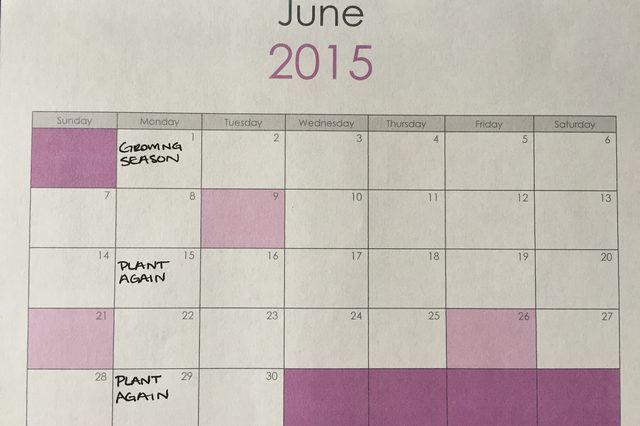Bulbs
Flower Basics
Flower Beds & Specialty Gardens
Flower Garden
Garden Furniture
Garden Gnomes
Garden Seeds
Garden Sheds
Garden Statues
Garden Tools & Supplies
Gardening Basics
Green & Organic
Groundcovers & Vines
Growing Annuals
Growing Basil
Growing Beans
Growing Berries
Growing Blueberries
Growing Cactus
Growing Corn
Growing Cotton
Growing Edibles
Growing Flowers
Growing Garlic
Growing Grapes
Growing Grass
Growing Herbs
Growing Jasmine
Growing Mint
Growing Mushrooms
Orchids
Growing Peanuts
Growing Perennials
Growing Plants
Growing Rosemary
Growing Roses
Growing Strawberries
Growing Sunflowers
Growing Thyme
Growing Tomatoes
Growing Tulips
Growing Vegetables
Herb Basics
Herb Garden
Indoor Growing
Landscaping Basics
Landscaping Patios
Landscaping Plants
Landscaping Shrubs
Landscaping Trees
Landscaping Walks & Pathways
Lawn Basics
Lawn Maintenance
Lawn Mowers
Lawn Ornaments
Lawn Planting
Lawn Tools
Outdoor Growing
Overall Landscape Planning
Pests, Weeds & Problems
Plant Basics
Rock Garden
Rose Garden
Shrubs
Soil
Specialty Gardens
Trees
Vegetable Garden
Yard Maintenance
How to Store Garden Seeds
How to Store Garden Seeds. Whether you harvested seeds from seed pods on your backyard plants, or you have leftover seeds from a seed packet that you opened but didn't finish, don't toss them into the garbage can or compost pile. When such vegetable or flower seeds are properly stored, they can be used the following year and help save you money in...
Whether you harvested seeds from seed pods on your backyard plants, or you have leftover seeds from a seed packet that you opened but didn't finish, don't toss them into the garbage can or compost pile. When such vegetable or flower seeds are properly stored, they can be used the following year and help save you money in the long run.
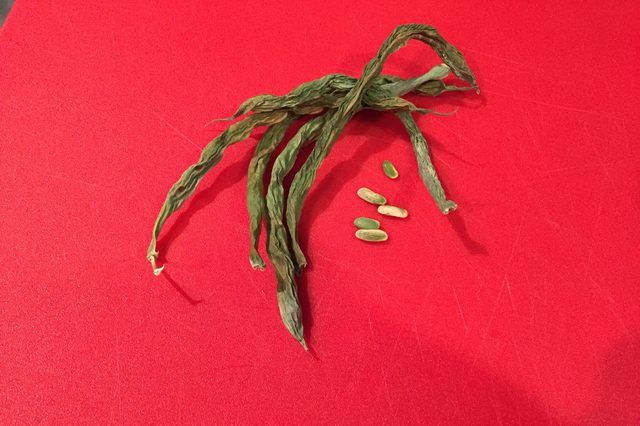
If you're saving flower or vegetable seeds from a commercial seed packet, they are already clean and do not need further preparation.
However, if the seeds were collected from an outdoor plant, they must be prepared and cleaned if necessary. For seeds from pods, such as those collected from beans (Phaseolus vulgaris), simply wait for the pods to become brittle and dry before removing the pods from the plant and breaking them open to exposed the dry seeds. Inspect each seed and remove any stems, pluck off chaff, and brush off dirt and other debris with clean, dry hands.
For seeds collected from moist fruits, such as squashes (Cucurbita spp.), scrape the seeds out of the fruit, separate the seeds from any flesh or pulp, and dry the seeds on a paper towel for three weeks.
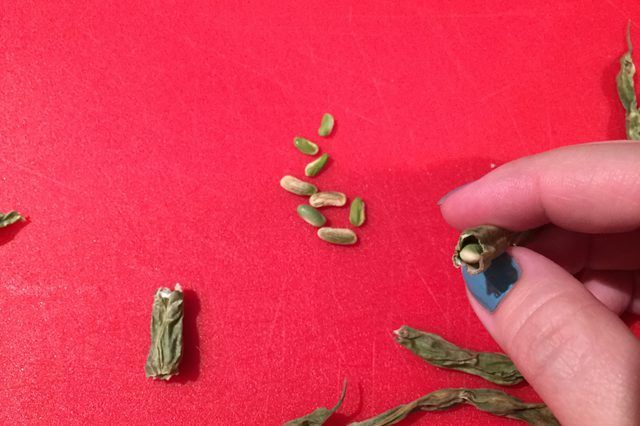
Sealable glass containers are ideal for storing seeds. First, add an inch of uncooked rice to the bottom of the jar. Alternatively, sprinkle a couple tablespoons of dried milk into the jar. The rice or dry milk sucks out the moisture in the air in the jar. Cover the rice or milk with a couple layers of clean tissue paper. Replace the dried milk in the jar every six months.
Place the vegetable seeds or flower seeds on top of the tissue paper. Seal the jar, then label the jar with the type of seed and the date you stored the seed. Only store one type of seed per jar. If there are multiple kinds of seeds, use multiple jars.
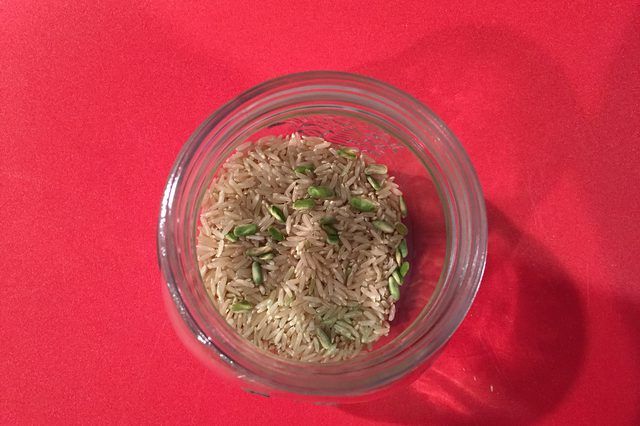
Stored seeds do best when kept at a temperature that ranges between 32 degrees and 41 degrees Fahrenheit. This makes a refrigerator ideal. University of Illinois Extension recommends storing the sealed jar in the bottom drawer of the refrigerator. Allow the jar and its contents to warm up to room temperature before opening. Opening while the jar is still cool can cause moisture to condense and the seeds will stick together.
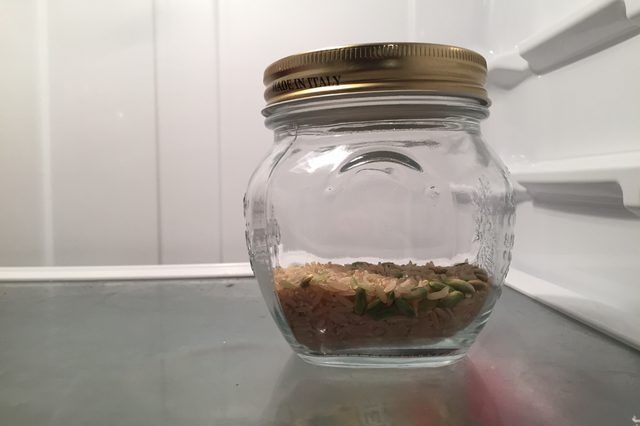
For the best germination rates, try to use all stored flower and vegetable seeds the next growing season. Seed health and viability goes down the longer the seeds are stored. If you must store seeds longer, keep in mind that most types of seeds last approximately 3 years or less. Generally, oily seeds don't last as long as other types of seeds. For example, sweet corn (Zea mays) seeds only last a year while broccoli (Brassica oleracea) can last up to five years.
For flowers, annuals typically last anywhere from one to three years, while perennial seeds can get stored for two to four years. Regardless of the type of seed, the sooner it gets planted, the better.
